The TikTok application, published by ByteDance, is considered important enough by the European Commission to be subject to the new rules imposed by the Digital Markets Act (DMA). Here are all the changes made by the Chinese social network to comply.
At the beginning of March, the Digital Markets Act came into force, new large-scale European legislation aimed at regulating digital markets and in particular putting an end to the anti-competitive practices of the largest players. The latter are also subject to certain stricter rules: Google, Apple, Microsoft, Amazon, Meta, as well as ByteDance, the Chinese company publishing the social network TikTok. Here are all the changes made by ByteDance to comply with the DMA.
These changes were compiled in a non-confidential version of ByteDance’s report submitted to the European Commission.
For ByteDance, TikTok is not a “access controller»
What must first be remembered is that ByteDance denies being considered a “gatekeeper», or an access controller. As a reminder, it is the European Commission which designates platforms as access controllers or not, according to these criteria:
- Provide one or more essential services in at least three European countries;
- Have a turnover of 7.5 billion euros per year in the last three years or 75 billion euros in market capitalization over the last year;
- Counting more than 45 million users per month and 10,000 professionals per year over the last three years.
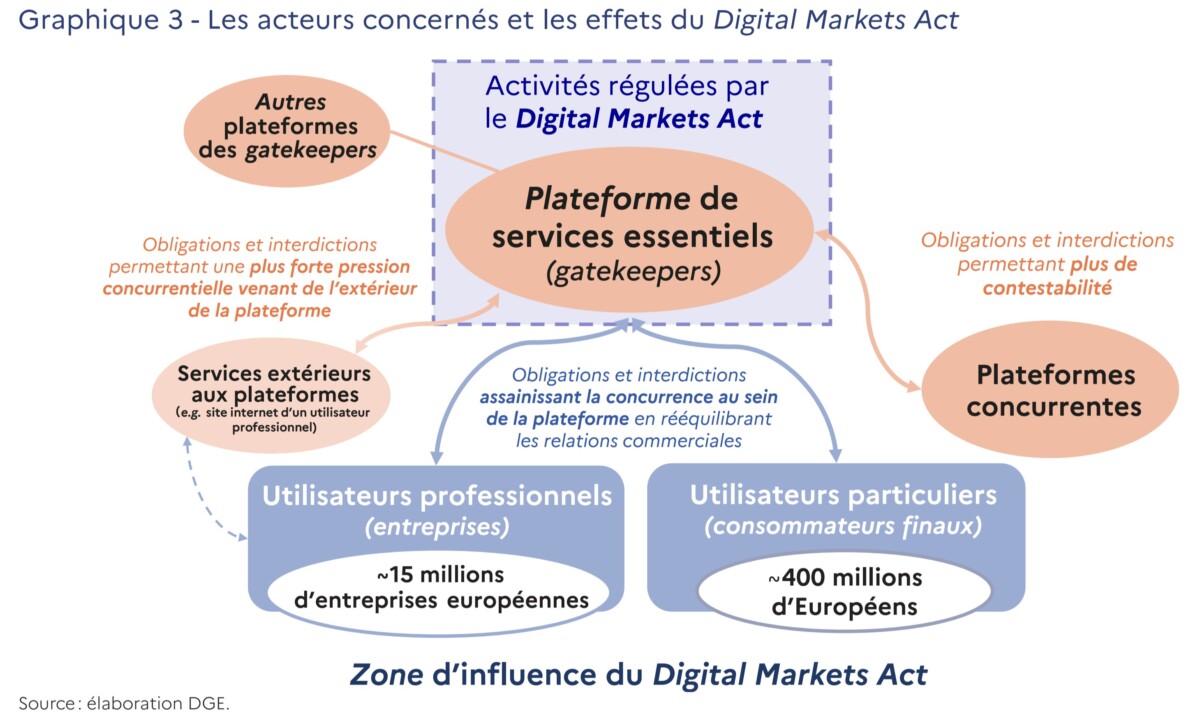
Last September, the European Commission designated TikTok as a social network meeting these criteria and added it to its list. Two months later, TikTok defended itself from this in a press release. The application appealed this decision at the time. According to him, “our designation risks undermining the DMA’s stated purpose of protecting the real gatekeepers from new competitors like TikTok. Far from being an access controller, our platform, which has been operating in Europe for a little over five years, is undoubtedly the most competent challenger to the activities of more established platforms.»
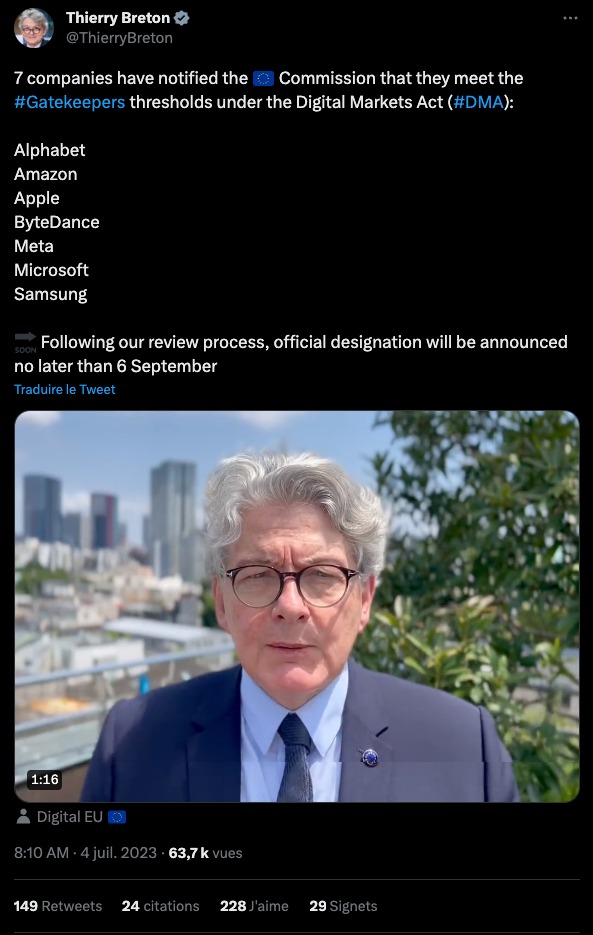
For ByteDance, TikTok still faces great competitive pressure from competing and highly successful companies. The company argues that “some of them have already leveraged their existing market advantage to mimic our core product experience, quickly gaining significant scale that took us years to build.» The names are not given, but ByteDance strongly implies that these are Instagram and its Reels as well as YouTube and its Shorts. TikTok also refutes the dependence of certain companies on the social network. Finally, the latter refutes having reached the legal threshold of income generated in the European Economic Area, set at 7.5 billion dollars per year. The application states that it has been designated as an access controller “based on the global market capitalization of its parent company – a figure that is based not only on TikTok’s business performance in the region, but also primarily on the performance of business sectors that don’t even operate in Europe.»
However, TikTok, with 134 million users per month in the European Union, has decided to respect the rules dictated by the Digital Markets Act. This is as it says it did with the Digital Services Act (DSA), by hiring more than 6,000 European content moderators. After an appeal filed in November 2023 with the Court of Justice of the European Union, TikTok lost in summary proceedings on February 9, 2024.
TikTok data will no longer necessarily be shared with CapCut
Within the European Union, ByteDance offers only two services: TikTok and CapCut, a video editing application designed for… TikTok. But regardless, it is still a different and widely used application. This means that ByteDance must now obtain consent from its users to combine data between TikTok and CapCut, even if you have to log in with a TikTok account on CapCut (this is not the only connection option).
This combination of data serves to “personalize the user experience on CapCut“, writes ByteDance in its report. With the DMA, CapCut launched “a slightly modified account linking experience in the EEA […] The aim is to make it easier for users to understand why CapCut uses TikTok data, provided the user has consented to this.»
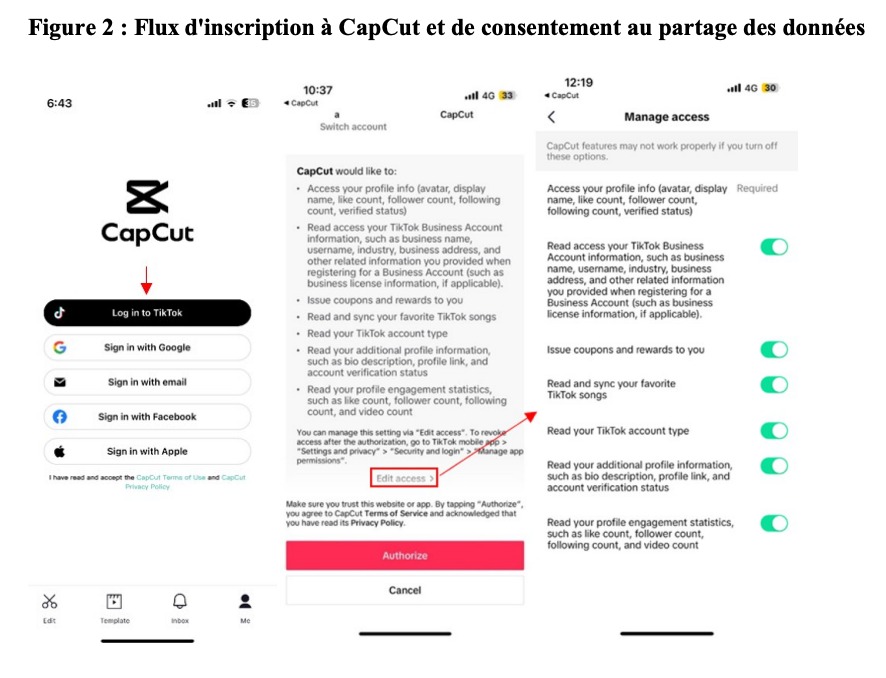
Among the information that CapCut can know, there is professional account information or even favorite music. It’s unclear exactly how this information is used in personalizing the experience with the video editing app. The combination of data can be managed at any time in the CapCut settings.
Better data portability
The Digital Markets Act extends the provisions that came into force with the GDPR in 2018 concerning access to data held by TikTok. Data upload extends to portability to third-party companies.
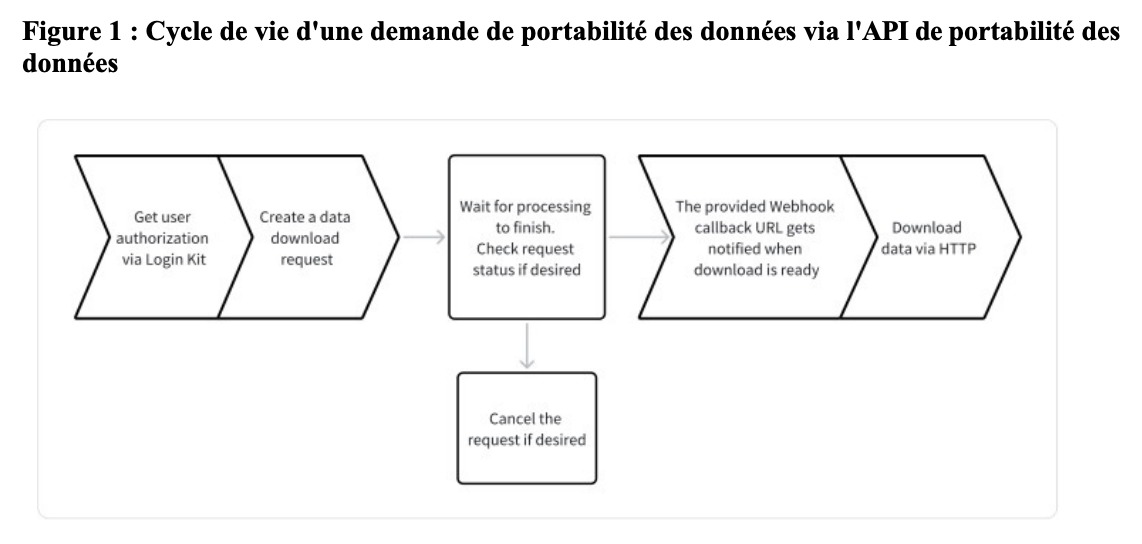
In other words, ByteDance must allow the downloading of a user’s data to entrust it to another company, making this easier. This involves the implementation of a dedicated API, improved access speed (a few seconds or minutes, compared to one to two days previously) as well as a more precise selection of data to download.
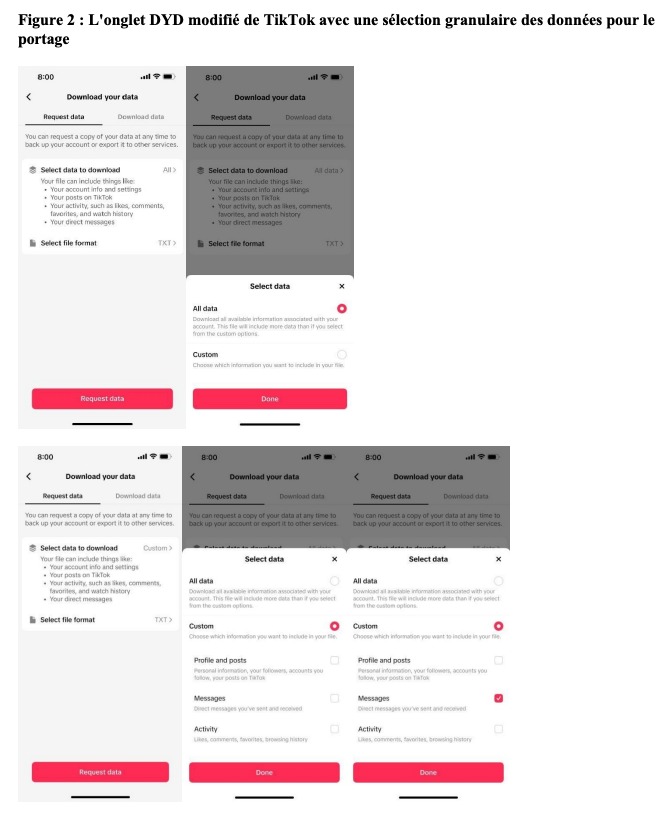
In its report, ByteDance continues: “TikTok is launching a new DYD tab, which gives users granular control over the scope of their data portability request […] In this menu, users are informed that they can request a copy of their data at any time. Additionally, users can select the data they want to transfer. Finally, users can choose the file format they prefer and finalize their request.»
Want to find the best Frandroid articles on Google News? You can follow Frandroid on Google News in one click.
